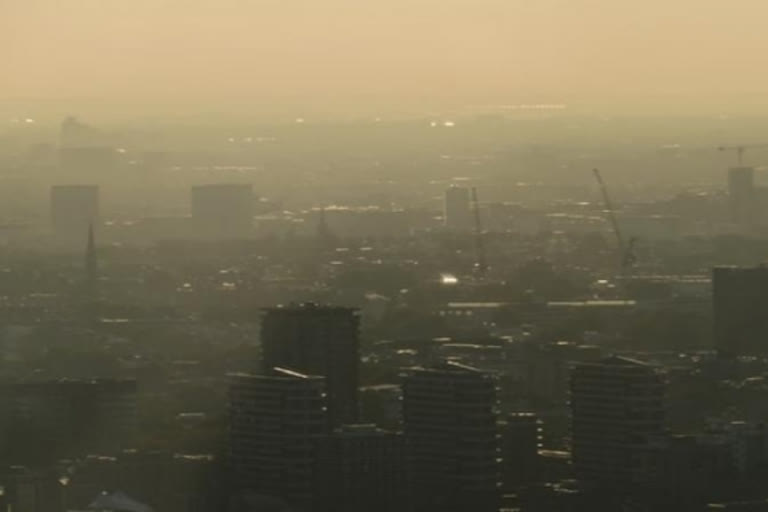New Delhi: India saw over 23.5 lakh premature deaths due to pollution of all types -- including 16.7 lakh fatalities caused by air pollution -- in 2019, the highest among all countries globally, according to a new study published in The Lancet Planetary Health journal. The majority of air pollution related deaths -- 9.8 lakh -- in India were caused by ambient PM2.5 pollution -- tiny pollution particles in the air that are two and one half microns or less in width, the researchers said. Another 6.1 lakh were due to household air pollution, they said.
Globally, pollution of any kind was responsible for nine million deaths in 2019 -- equivalent to one in six deaths worldwide. Air pollution -- both household and ambient -- was responsible for the greatest number of deaths at 6.67 million worldwide. "The health impacts of pollution remain enormous, and low- and middle-income countries bear the brunt of this burden. Despite its enormous health, social and economic impacts, pollution prevention is largely overlooked in the international development agenda, said study lead author Richard Fuller, from Global Alliance on Health and Pollution, Geneva, Switzerland.
"Attention and funding has only minimally increased since 2015, despite well-documented increases in public concern about pollution and its health effects," Fuller said in a statement. In India, air pollution is most severe in the Indo-Gangetic Plain (northern India), where topography and meteorology concentrate pollution from energy, mobility, industry, agriculture, and other activities, the researchers said.
According to the study, burning of biomass in households was the single largest cause of air pollution deaths in India, followed by coal combustion and crop burning. Population-weighted mean exposure to ambient air pollution peaked nationally in India at 95 milligrammes per cubic metre (mg/m3) in 2014, was reduced to 82mg/m3 by 2017, but more recently has been rising slowly again, the researchers said.
"India has developed a range of instruments for tackling air pollution, including a National Clean Air Program, and in 2019 launched a Commission for Air Quality Management in the National Capital Region. State Pollution Control Boards have regulatory powers to impose and enforce emissions standards on pollution sources, the authors of the study noted. "However, India does not have a strong centralised administrative system to drive its air pollution control efforts and consequently improvements in overall air quality have been limited and uneven," they said.
